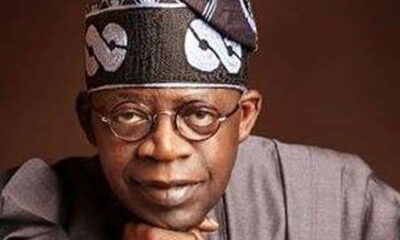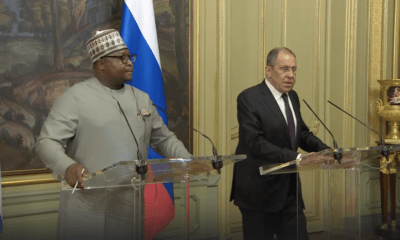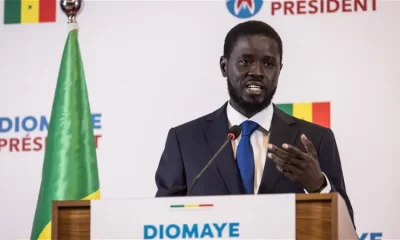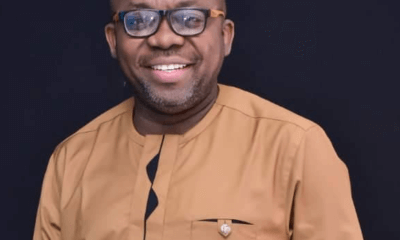National Issues
Poor Leadership Communication On Fuel Subsidy Removal, Tinubu First Misstep As President -By Abiodun Salako
Tinubu cannot be schooled in the art of communication in leadership or the history of fuel subsidy because he knows these things and is a force to reckon with. He ought to have done better with his communication style as a leader. This should be a cue for him to strengthen and utilise effective leadership communication to lead millions of Nigerians who believe he can be a symbol of change for the country.
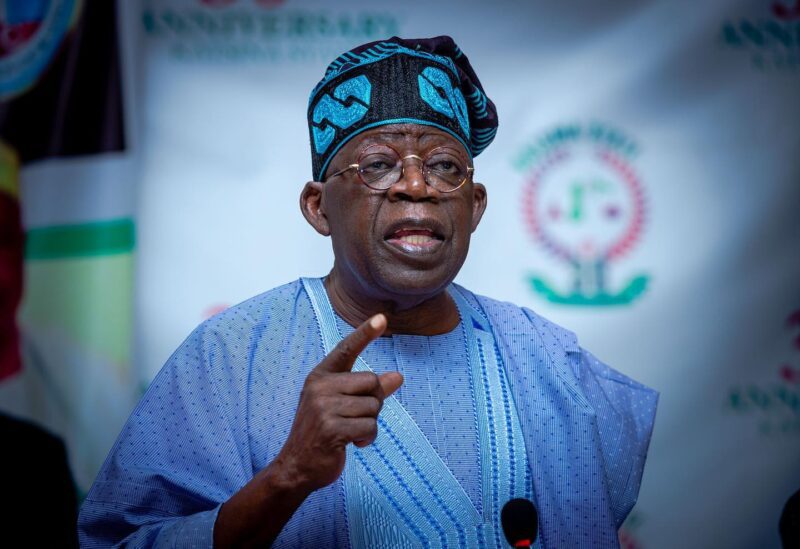
“Great leaders communicate and great communicators lead.”– Simon Sinek
Nigeria’s President, Bola Tinubu, during his inaugural address on Monday, May 29, 2023, announced the removal of fuel subsidy. “Subsidy is gone,” Tinubu said, noting that his government would instead channel funds into infrastructure and other areas to bolster the economy. These three words immediately set in motion a series of events that could have been well managed if Tinubu exercised proper leadership communication.
His announcement predictably resulted in high prices and long queues nationwide. Fuel prices jumped as high as N700 and N900 per litre in many fuel stations. Although the policy goes into effect on July 1, it has already sparked concerns and chaos as Nigerians scamper to buy fuel.
A day later, the Nigerian National Petroleum Company Limited (NNPCL) announced adjusted pump prices with Lagos State having the lowest pump price of N488 per litre while Maiduguri and Damaturu the highest pump prices of N577 per litre.
When Carl Frederick Buechner, American Author and Theologian, said “words have the power to make things happen”, this is a typical example of what he meant. Tinubu’s words alone without any official announcement changed things for the country, but not in a good way as hoped.
Analysts didn’t expect such a tactless statement from Tinubu during his inaugural address even though it is general knowledge that the subsidy would be removed. For starters, Tinubu is an astute politician who has spent over three decades in Nigeria’s political space. He has played major roles in party politics since 1992 when he was elected senator for Lagos West District under the Social Democratic Party (SDP).
Thus he is very much aware of how fragile Nigeria has become and how sore the issue of fuel subsidy is. Protests rocked the country after the announcement of the removal of the fuel subsidy on 1 January 2012 and ended on 16 January 2012 after it was partially reinstated by Goodluck Jonathan’s administration. Ironically, President Tinubu was at the head of the resistance when the then government tried to abruptly end the subsidy.
Fuel prices increased from 65 naira to 140 naira per litre. And the then Finance Minister, Ngozi Okonjo-Iweala, championed the decision without the country’s citizens receiving any prior warning. Tinubu just read a few lines on the removal of fuel subsidy without any warning or formal announcement during his inaugural address.
What can be gleaned from Tinubu’s approach is a case of a flawed leadership communication for a leader that aims to govern Africa’s most populous country. Effective leadership communication has never really been a strong suit of Nigeria’s changing governments. They forget that leadership communication enables leaders to rally their team around a shared vision, empower their followers, build trust, authenticity and successfully navigate organisational change. In this case, national change.
Moreover, clarity in any government is built on leadership communication amongst key players and the citizens. When communicating with citizens, public office holders should always speak in specifics. They should define the desired result of a project or strategic initiative and be clear about what they want to see achieved by the end of each milestone.
It is irrefutable that the clearer leaders are on what they aim to do, the less confusion there will be around priorities and expectations and how to get there. We all agree that it is imperative that the fuel subsidy should be removed. In light of Nigeria’s economic reality, the subsidy has become a huge financial burden. I mean, we spent N13 trillion on subsidies payment from 2005-2021.
While we understand that Tinubu was trying to make a statement on the removal of fuel subsidy in his inaugural address, knowing how volatile Nigeria has become, he ought to have waited a week before officially announcing the removal alongside his strategies to reduce or control its ripple effect on Nigerians and the economy.
Tinubu made no speech or press statement to convey his ideas on how to cushion the effects of fuel subsidy removal to the people he’s meant to govern. He didn’t intimate those who voted him into office with any information. In leadership communication, poor information dissemination only fuels uncertainty and humans can get pretty chaotic when there’s lack of information.
A leader that doesn’t know how to communicate at the right time doesn’t connect with his followers. An inaugural address was not the right medium to seal the subsidy removal. It was the best place to make his intention known on removing it soon to Nigerians, but not to seal it. Nigerians weren’t aware of any meeting between the president and an economic team and other stakeholders on the subject matter. It was after his inaugural address that he met with NNPC boss, Mele Kyari and CBN boss, Godwin Emefiele.
This also brings to the fore how leaders can empathise with their followers. Tinubu’s lack of communication after the inaugural address on how his administration would ensure that his government scales through this hurdle cuts off the part of empathy, which is the understanding of hardship citizens will go through with the removal of the fuel subsidy.
A perfect case study of how leaders use empathy to lead was how New Zealand’s former Prime Minister, Jacinda Ardern, focused on empathy during the Covid-19 outbreak thereby resonating with her people and putting the country on track for success against the coronavirus. Helen Clark, New Zealand’s Prime Minister from 1999 to 2008 described citizens feeling that Ardern stood with them in such a perilous time.
Due to Tinubu’s stunted leadership communication, the Nigeria Labour Congress (NLC) is set to embark on a nationwide strike from Wednesday next week if NNPCL fails to reverse the pump price for fuel.
The grouse NLC has against Tinubu’s subsidy removal is the fact that the president removed the subsidy without consulting relevant stakeholders and putting in place adequate measures to cushion its effect on workers. A valid grouse, I must say. The meeting between the new government and the NLC should have happened before the announcement. Of course, there’d be some resistance, but the president’s transparency would have stifled the resistance in the long run.
It is likely that a significant portion of the unravelling chaos and incoming strike by the NLC could have been averted or controlled if Tinubu’s administration had had a sit-down with relevant stakeholders including the NLC and detailed his strategies to minimize impact on millions of lives before the end of June.
Tinubu cannot be schooled in the art of communication in leadership or the history of fuel subsidy because he knows these things and is a force to reckon with. He ought to have done better with his communication style as a leader. This should be a cue for him to strengthen and utilise effective leadership communication to lead millions of Nigerians who believe he can be a symbol of change for the country.
Furthermore, I am not against the fuel subsidy removal as any progressive thinking Nigerian shouldn’t be, however there is never any room to compromise on leadership communication. It is a bridge, a ship, and a door. Leaders mustn’t joke with how powerful top to bottom communication is. They must remain calculative on how to use it. On this, no one could have expected jagaban to underperform.
Abiodun Salako, a journalist and editorial assistant at Divinations Mag writes from Lagos.

